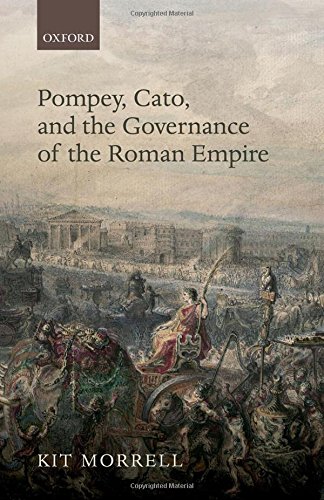

Most ebook files are in PDF format, so you can easily read them using various software such as Foxit Reader or directly on the Google Chrome browser.
Some ebook files are released by publishers in other formats such as .awz, .mobi, .epub, .fb2, etc. You may need to install specific software to read these formats on mobile/PC, such as Calibre.
Please read the tutorial at this link. https://ebooknice.com/page/post?id=faq
We offer FREE conversion to the popular formats you request; however, this may take some time. Therefore, right after payment, please email us, and we will try to provide the service as quickly as possible.
For some exceptional file formats or broken links (if any), please refrain from opening any disputes. Instead, email us first, and we will try to assist within a maximum of 6 hours.
EbookNice Team

Status:
Available4.3
25 reviewsAttempts to improve provincial governance over the period 70-50 BC are examined in depth, with a particular focus on the contributions of Gnaeus Pompeius Magnus (Pompey) and the younger Marcus Porcius Cato. These efforts ranged well beyond the sanctions of the extortion law, encompassing show trials and model governors, and drawing on principles of moral philosophy. In 52-50 BC they culminated in a coordinated reform programme which combined far-sighted administrative change with a concerted attempt to transform the ethos of provincial governance: the union of what Cicero called 'Cato's policy' of ethical governance with Pompey's lex de provinciis, a law which transformed the very nature of provincial command.
Though more familiar as political opponents, Pompey and Cato were united in their interest in good governance and were capable of working alongside each other to effect positive change. This book demonstrates that it was their eventual collaboration, in the late 50s BC, that produced the republic's most significant programme of provincial reform. In the process, it offers a new perspective on these two key figures as well as an enriched understanding of provincial governance in the late Roman republic.